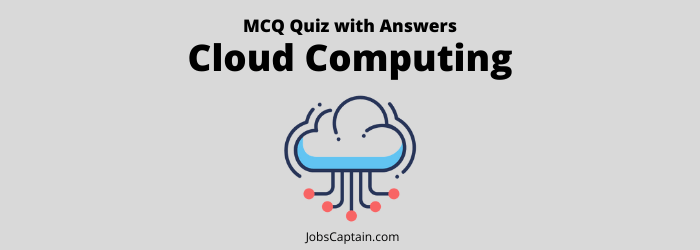
Question 1. The measures of centrality include ___________.
(A) Betweenness
(B) Closeness
(C) Degree
(D) All of the above
Question 2. Nodes in the network analysis graph represent the ________ and the edges represent the relationships between nodes.
(A) Actors
(B) Nodes
(C) Users
(D) Both a and b
Question 3. JOES stands for ________ .
(A) Joint Expensive Operating System
(B) Just Expensive Operating System
(C) Just Enough Operating System
(D) Joined Environmental Operating System
Question 4. Arrange the stages in supply chain management:
- i. Material and Equipment Supplies
- ii. Delivery of Products
- iii. After Sale Service and Returns
- iv. Planning and Coordination
- v. Manufacturing and Testing
(A) iv, v, i, ii, iii
(B) iv, i, v, iii, ii
(C) iv, i, v, ii, iii
(D) i, ii, iv, v, ii
Question 5. Which is the latest Operating System?
(A) Real-time OS
(B) Desktop OS
(C) Mainframe OS
(D) Cloud OS
Question 6. In future, companies wont worry about the capital for large data center because of ___________.
(A) SaaS solution
(B) PaaS solution
(C) IaaS solution
(D) None of the above
Question 7. Responsibility of OS developers to add new feature in existing OS are ________.
(A) More reliability
(B) Convenience and security
(C) Compatibility
(D) All of the above
Question 8. CometCloud supports policy based autonomic______ and_______.
(A) CloudBursting
(B) CloudBridging
(C) None
(D) Both A and B
Question 9. _________ is an autonomic cloud engine whose basic aim is to realize a virtual component of cloud with computing capability.
(A) CometCloud
(B) AsteroidCloud
(C) StarCloud
(D) PlanetCloud
Question 10. In Comet, a tuple is a simple ___ string.
(A) Java
(B) Python
(C) XML
(D) HTML
Question 11. Which are the three conceptual layers in CometCloud?
(A) Development, Application, Physical
(B) Infrastructure, Dynamic, Static
(C) Transport, Network, Programming
(D) Programming, Service, Infrastructure
Question 12. The cloud media services are ___________.
(A) Cloud gaming
(B) Experiencing multiscreens
(C) Image Processing
(D) All of the above
Question 13. Which of the following policies is not mentioned in ‘not to violate’ regarding CloudBurst?
(A) Deadline-based
(B) Budget-based
(C) Quality-based
(D) Workload-based
Question 14. SEEP is used in _________ .
(A) Energy optimization
(B) Multimedia
(C) Information leakage
(D) Cost reduction
Question 15. KPI stands for ___________.
(A) Key Practices in Industry
(B) Key Performance Index
(C) Key Performance Indicators
(D) Key Parameters in Information
Question 16. Keywords in Docker are ________.
(A) Develop, ship, run anywhere
(B) Create, export
(C) Transport, cloud
(D) User, data, privacy
Question 17. SEEP stands for _________.
(A) System End to End Protocol
(B) Static Environmental Execution Process
(C) Symbolic Execution and Energy Profiles
(D) State Execution And Energy Profiles
Question 18. Which containers are used by Docker servers?
(A) Windows
(B) Android
(C) Linux
(D) Mac
Question 19. Docker is generally configured to use TCP port ____ while executing unencrypted traffic.
(A) 3306
(B) 53378
(C) 2375
(D) 2376
Question 20. Two main components in Docker are __________.
(A) Master, slave
(B) Client, server
(C) Client, master
(D) All of the above
Question 21. Docker is generally configured to use TCP port ____ while managing encrypted traffic.
(A) 3306
(B) 53378
(C) 2375
(D) 2376
Question 22. CNS stands for __________.
(A) Consumption Near Sweet-Spot
(B) Continuous Network System
(C) Compact Neural System
(D) Compound Near Sweet-Sp0t
Question 23. The examples of deployment tools are __________.
(A) Docker’s storm
(B) New Relic’s Centurion
(C) Spotify’s Helios
(D) All of the above
Question 24. Basic approach of Docker as a company is ___________.
(A) “batteries included but removable”
(B) “batteries included but non-removable”
(C) “batteries but chargeable”
(D) “battery lessexecution”
Question 25. Docker can simplify both, ________ and _________.
(A) Process, state
(B) Behavior, aspect
(C) Workflows, communication
(D) All of the above
